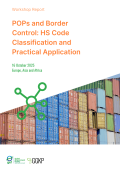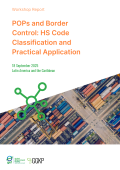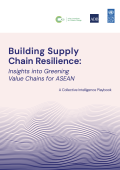Trade is an important driver of economic growth. However, increasing volumes of trade without appropriate policy support can have adverse consequences, such as pollution and emissions from transport, pressure on natural resources extraction for production and processing, and social marginalisation through rising income inequality or joblessness.
Nevertheless, trade, when accompanied by appropriate regulation, can facilitate green growth by creating new export markets for environmental goods and services, by increasing trade in products certified for sustainability and promoting certification-related services, and by greening international supply chains. The adoption of more resource- and energy-efficient production methods as part of green economy measures has an important role to play in helping both nations and firms secure access to, and long-term competitiveness in, international markets. In addition, adapting trade commitments to positive climate change mitigation efforts is essential. It is not only necessary to reduce potential conflicts between international trade law and environmental measures, but also to encourage the protection of the environment through the trade regime (ICTSD, 2015).
Relevance to the SDGs
Trade affects the implementation of the Sustainable Development Goals (SDGs) in all sectors. For example, reducing world agricultural market distortion is directly linked to SDG 2 on achieving food security and promoting sustainable agriculture and target 15.7 aims to reduce trade in poached or illegally trafficked wildlife. SDG 8, specifically target 8.A calls for an increase in Aid for Trade to developing countries. And SDG 17 recognized trade as a way to strengthen the means of implementation for sustainable development.
SDG 2.B
Agricultural Trade SDG 15.7
Wildlife Trade SDG 17
Means of Implementation
Trade finance includes bank guarantees, documentary credits and documentary collections, which are issued by commercial banks, insurers and traders. Compared to other financial instruments, trade finance has lagged behind in assessing environmental, social and governance (ESG) risks. Providers of trade finance can drive more sustainable practices.
Research shows links between stronger ESG performance and lower credit risk, providing an incentive for the finance sector to integrate these factors into trade finance. A number of global initiatives are working to support the application of sustainability criteria in trade financing. For instance, the OECD Common Approaches initiative provides guidance for undertaking environmental and social due diligence to identify, consider and address the potential environmental and social impacts and risks relating to applications for officially supported export credits. Likewise, the IFC Global Trade Finance Program offers confirming banks partial or full guarantees to cover payment risks on banks in emerging markets.
With supply chain finance becoming digital, new ways to assess and manage risk are emerging. Innovative trade digitalization solutions, such as Blockchain, can also support the traceability of sustainable goods and transparency of sustainability data.











